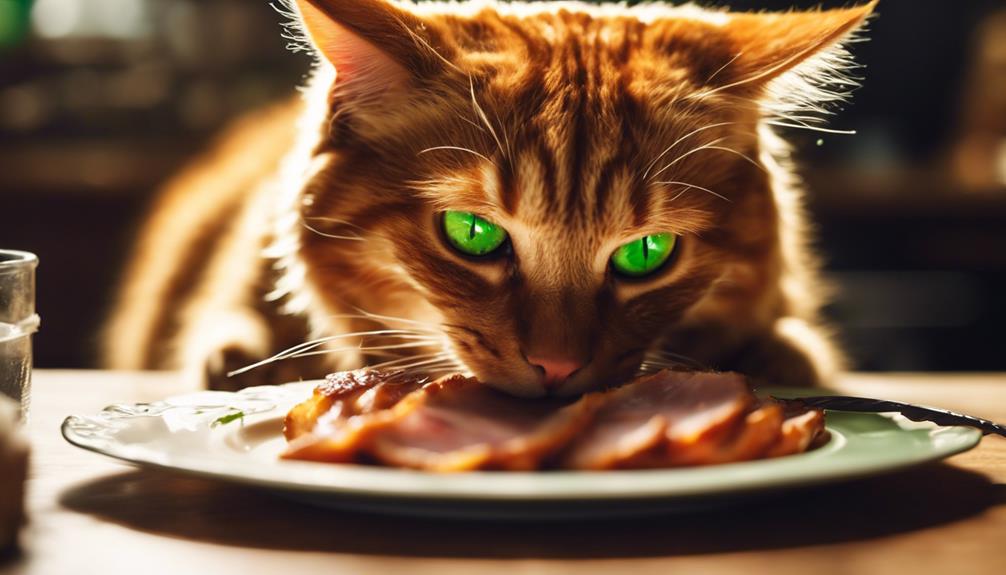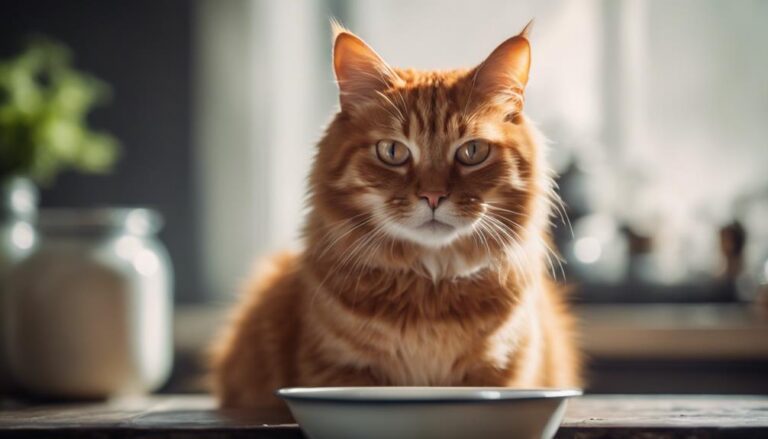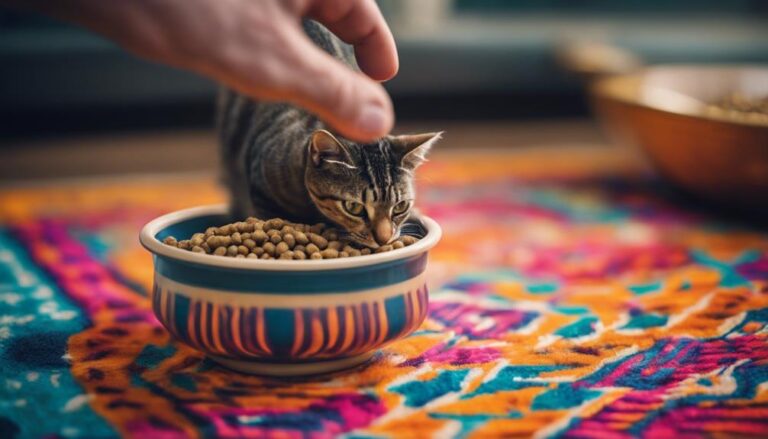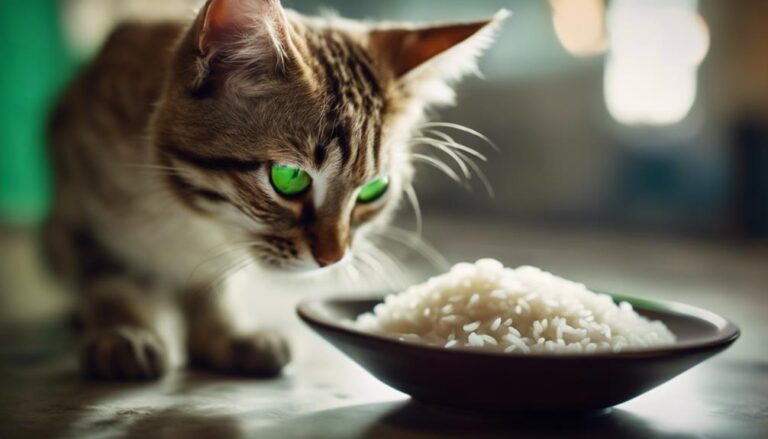If you've ever wondered about introducing turkey into your feline friend's diet, there are a few considerations to keep in mind. While cats can consume turkey, there are specific guidelines to follow to ensure their safety and well-being. So, before you offer your cat a taste of that Thanksgiving leftover, it's important to understand the potential benefits and risks associated with feeding them this popular poultry.
Turkey Suitability for Cats
When considering whether cats can eat turkey, it's important to understand the suitability of this meat for their diet. Cats are obligate carnivores, meaning their diet primarily consists of meat. Turkey, being a lean meat, can be a great addition to a cat's food repertoire. Cooked turkey, especially plain turkey breast meat, can serve as a low-fat, low-calorie treat for your feline friend.
Cats can enjoy the benefits of turkey as it's rich in taurine, an essential amino acid crucial for their overall health. Taurine plays a significant role in maintaining good eyesight, a healthy heart, and reproductive health in cats. Offering plain cooked turkey in moderation can be a delightful experience for your cat while providing essential nutrients.
However, it's vital to note that cats should avoid processed turkey products and raw turkey. Raw meat poses potential health risks to cats such as bacterial infections. Therefore, when sharing turkey with your cat, always ensure it's cooked thoroughly to prevent any adverse effects on their health.
Health Benefits of Turkey for Cats
Rich in essential nutrients, turkey offers numerous health benefits for your feline companion. Turkey is an excellent source of taurine, an essential amino acid vital for cat food, supporting heart and eye health.
The high protein content in turkey not only helps your cat feel full for longer periods but also aids in muscle maintenance. Additionally, turkey provides essential minerals like B vitamins, selenium, and magnesium, promoting your cat's overall well-being.
Opting for plain, cooked turkey as a treat option can be beneficial since it's low in fat and calories, making it a healthy snack choice for your cat. Including turkey in your cat's diet can also help reduce the risk of diabetes and heart disease, making it a valuable addition to their meals.
Risks of Feeding Cats Turkey
When thinking about feeding your cat turkey, it's crucial to be aware of the risks involved. Potential digestive issues, allergic reactions, and the danger of bones splintering are important points to consider.
Always consult with your vet before giving your cat turkey to ensure their safety and well-being.
Potential Digestive Issues
Feeding cats turkey can pose potential digestive issues, primarily due to factors like high fat content, splintering bones, and harmful seasonings. When offering your cat turkey meat, make sure to avoid feeding them the skin, as it's high in fat and can lead to stomach upset.
Additionally, be cautious with cooked turkey as the bones can splinter, causing gastrointestinal injuries. Seasonings like garlic and onion commonly found in cooked turkey are harmful to cats and can trigger health issues.
Overconsumption of turkey can also result in stomach upset and even pancreatitis in cats. To ensure a safe option, it's best to feed your cat plain, cooked turkey in moderation to prevent any potential digestive problems.
Allergic Reactions in Cats
To prevent potential allergic reactions in cats, closely monitor their symptoms after introducing turkey into their diet. Allergic reactions can manifest as itching, skin redness, vomiting, and diarrhea due to proteins in the meat triggering an immune response. The severity of symptoms can vary, and in some cases, veterinary attention may be necessary.
It's crucial to observe your cat for any signs of allergic reactions when feeding them turkey. If you notice any concerning symptoms, consulting a vet is advised to determine the best course of action for your cat's health. Remember, being vigilant and proactive in monitoring your cat can help prevent and address any potential allergic reactions to turkey.
Bones Can Cause Harm
After discussing the risks of allergic reactions in cats to turkey, it's important to address the potential harm that turkey bones can pose to your feline friend.
Turkey bones can cause injuries by splintering and potentially cutting or puncturing the intestines of cats, leading to serious health issues. Even small turkey bones can pose a significant risk to your cat's digestive system.
To prevent any harm, always ensure to remove turkey bones when feeding cats this meat. Feeding cats turkey bones should be avoided at all costs due to the potential for causing digestive problems and injuries.
Keep your cat safe by being vigilant and making sure that no bones are present in the turkey meat you share with them.
Moderation in Cat Turkey Consumption
When offering turkey to your cat, remember to practice moderation in their consumption to maintain their health and well-being. Limit turkey treats to no more than 10% of your cat's daily caloric intake to prevent overconsumption.
Opt for small portions of plain, cooked turkey as an occasional treat rather than seasoned or processed turkey products, which may contain ingredients harmful to cats. Consulting a vet before introducing turkey into your cat's diet is crucial for ensuring balanced nutrition.
Keep a close eye on your cat for any signs of digestive issues or allergies when incorporating turkey, as some cats may have sensitivities to new foods. Moderating your cat's turkey intake is key to preventing potential health issues and maintaining a healthy cat diet.
Turkey Preparation for Cats
When feeding your cat turkey, remember to offer plain, cooked meat without any seasoning or additives.
Avoid turkey skin due to its high fat content that may upset your cat's stomach.
Stick to boneless pieces and ensure the turkey is well-cooked for safe consumption.
Safe Turkey Portions
To ensure your cat's safety and health, prepare plain, cooked turkey breast meat in small portions as a treat. Cats can eat turkey as treats, but it should only account for 10% or less of their total food intake to maintain a balanced diet.
Offer 2-3 thumbnail-sized pieces of cooked turkey breast once or twice a week to prevent overindulgence. Avoid giving cats fatty bits, skin, seasoned areas, or processed turkey products, as these can be harmful.
If you plan to incorporate turkey into your cat's diet more regularly or in homemade meals, consult a veterinarian for guidance on portion sizes and overall nutritional balance. Remember, moderation and quality are key when adding turkey to your cat's diet.
Cooking Methods for Cats
After ensuring you have prepared plain, cooked turkey breast in small portions as a safe treat for your cat, you can now proceed to discuss the cooking methods suitable for cats.
When cooking turkey for your feline friend, remember these key points to ensure pet health:
- Cook the Meat: Always ensure the turkey is fully cooked to eliminate harmful bacteria present in raw turkey.
- Remove Turkey Skin: Cats can eat plain, cooked turkey without the skin to avoid potential digestive issues.
- Avoid Organ Meats: Organ meats may be too rich for cats, so it's best to stick to lean turkey meat.
- Let Your Cat Enjoy: Offer the cooked turkey in small, manageable pieces to prevent choking hazards and promote safe consumption.
Signs of Turkey Allergy in Cats
If your cat exhibits symptoms like vomiting, diarrhea, itching, sneezing, or skin rashes after consuming turkey, it may indicate a turkey allergy. Cats can develop allergic reactions to turkey protein, leading to various signs of discomfort. Besides these common signs, a turkey allergy in cats might also manifest as a swollen face, hives, or difficulty breathing.
Allergic reactions in cats can range from mild to severe, with some cases requiring immediate veterinary attention. It's crucial to monitor your cat closely for any signs of allergic reactions after feeding them turkey, as sensitivities can develop over time. If you suspect your cat has a turkey allergy based on the observed signs, it's advisable to consult a veterinarian for a proper diagnosis and guidance on managing your cat's dietary needs.
Frequently Asked Questions
Can I Feed My Cat Cooked Turkey?
You can feed your cat cooked turkey as an occasional treat. Stick to plain, boneless, and well-cooked turkey. Seasoned or pre-cooked turkey may cause digestive issues. Always consult a vet before introducing new foods to your cat's diet.
Can Cats Eat Deli Meat Turkey?
Avoid feeding cats deli meat turkey due to high sodium and nitrates. Opt for plain, cooked ground turkey as a healthier option. Homemade treats should be unseasoned. Freeze and thaw turkey patties for safe cat snacks.
Is Turkey or Chicken Better for Cats?
In general, turkey offers cats a different nutritional profile than chicken. It contains more selenium and zinc, which are essential for overall health. Both can be part of a balanced diet, providing variety and unique benefits.
Can Cats Have Thanksgiving Turkey?
When thinking about Thanksgiving turkey for cats, remember plain, roasted turkey breast is a good treat. Skip the skin, seasonings, stuffing, and gravy. Organ meats are fine if cooked and diced. Avoid onions and garlic. When unsure, ask a vet.






